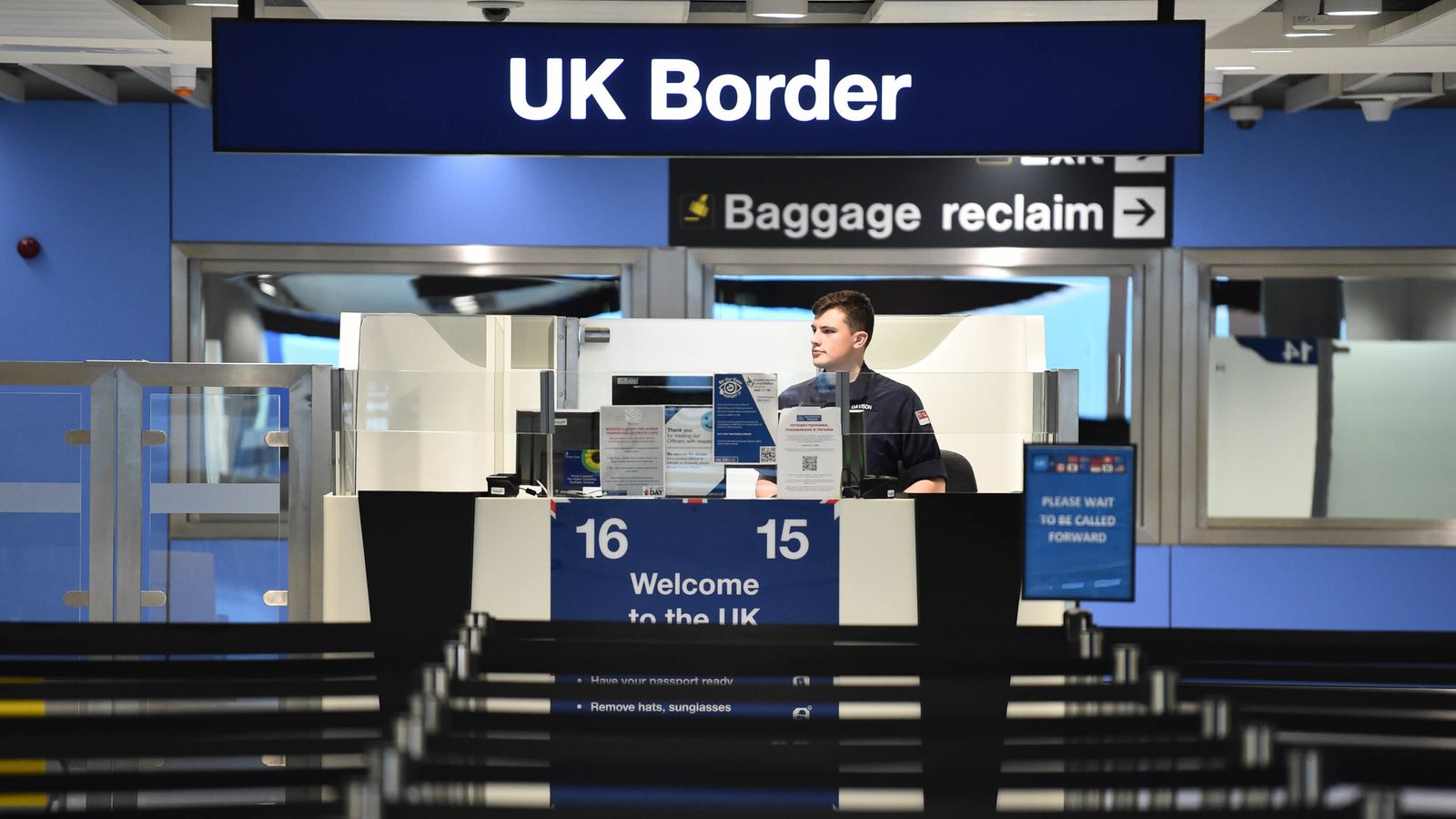
Every adult in Britain will require a digital ID under plans to tackle illegal immigration.
Sky News understands that Prime Minister Sir Keir Starmer could announce his backing for the scheme in a speech as early as Friday.
Politics Live: Andy Burnham says Labour MPs want him to oust Starmer
The so-called “Brit card” would verify a citizen’s right to live and work in the UK.
The plans would require anyone starting a new job or renting a home to show the card on a smartphone app, which would then be checked against a central database of those entitled to work and live here.
It is hoped this would reduce the attraction of working in the UK illegally, including for delivery companies.
At the moment, workers have to show at least one form of physical ID in the form of documents, but there are concerns within government that these can be faked.
French President Emmanuel Macron has repeatedly warned that the lack of ID cards in the UK acts as a major pull factor for Channel crossings, as migrants feel they are able to find work in the black economy.
Sir Keir is due to speak at the Global Progress Action Summit in London on Friday, alongside Australian Prime Minister Anthony Albanese and Canadian Prime Minister Mark Carney.
The plan represents a shift in the government’s position, as last year ministers ruled out the idea following an intervention from Sir Tony Blair just days after Labour won the general election.
The former Labour prime minister has long been an advocate of ID cards and took steps to introduce a system that would begin as voluntary and could later become compulsory while in office.
The rollout was scrapped after Labour was ejected from power in 2010, having been opposed by the Liberal Democrats and the Tories at the time.
Last July, then Home Secretary Yvette Cooper said of the idea: “It’s not in our manifesto. That’s not our approach.”
The UK has only previously had mandatory ID cards during wartime, with the last tranche scrapped in 1952.
The idea has long been opposed by civil liberty and privacy groups in the UK.
Sir Keir is said to have shared their concerns but came round to the idea amid record high levels of small boat crossings.
A report by the Tony Blair Institute published on Wednesday said digital ID can “help close loopholes that trafficking gangs and unscrupulous employers currently exploit, reducing pull factors driving illegal migration to Britain and restoring control over borders”.
Labour Together, a Starmer-backed thinktank, published a report in June which said digital ID could play a role in right-to-work and right-to-rent checks, supporting “better enforcement of migration rules”.
How would digital ID work?
There is no unique regime for identity cards, but decisions the government would have to make include who is required to register, how much information they should hold, and whether physical forms of the ID should be made available.
Pat McFadden, now the work and pensions secretary, started a cross-government unit to look at how it could work while he was in charge of the cabinet office.
He visited Estonia last month, before the cabinet reshuffle, where he said the Baltic country’s model could be used as an example.
In Estonia, citizens are given a unique number at birth which they use to register marriages, access bank accounts, vote, book GP appointments, file their tax return and even collect supermarket loyalty points, among hundreds of other services.
Mr McFadden told The Times digital ID could be applied “to the immigration system, to the benefit system, to a number of areas”.
‘Checkpoint society’
The government’s plan will be subject to a consultation and would require legislation to be passed, before being rolled out.
Labour MPs on the left of the party have already hit out at the idea.
Nadia Whittome labelled the policy “divisive, authoritarian nonsense”, adding: “If we’re going to reheat Blair-era policies, can we please focus on lifting children out of poverty?”
The civil liberty group Big Brother Watch has again warned against their introduction, saying they would “do absolutely nothing to deter small boats” while making Britain “less free”.
They said: “Plans for a mandatory digital ID would make us all reliant on a digital pass to go about our daily lives, turning us into a checkpoint society that is wholly unBritish.”













